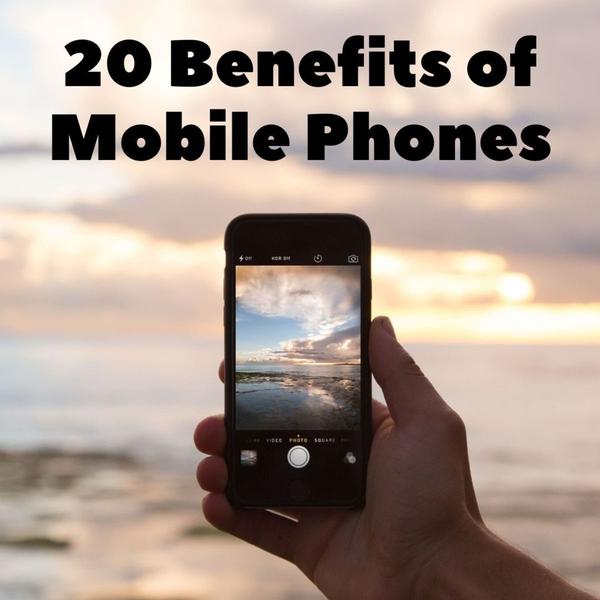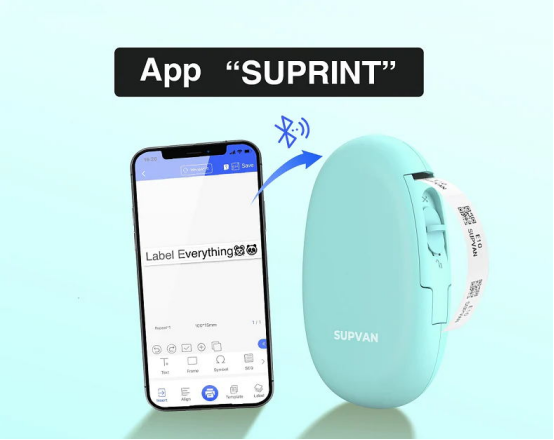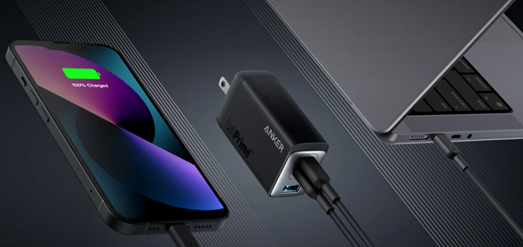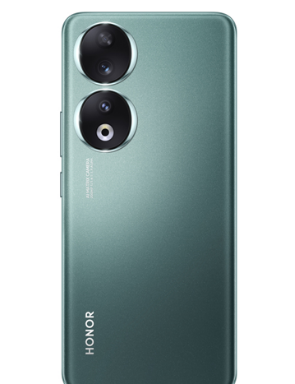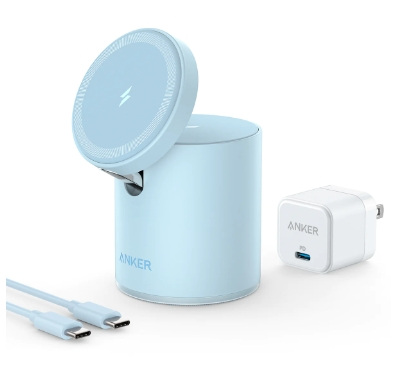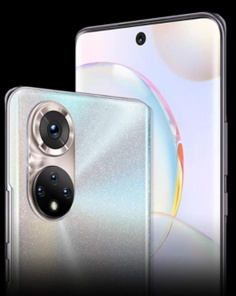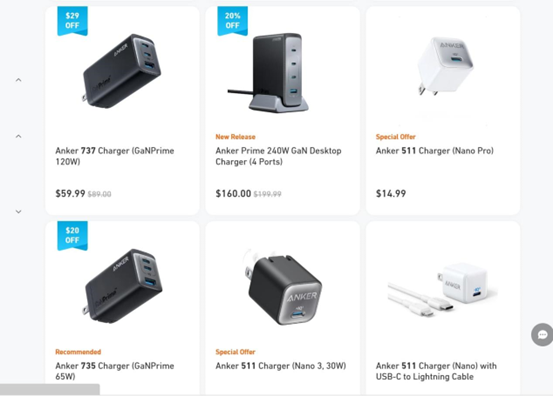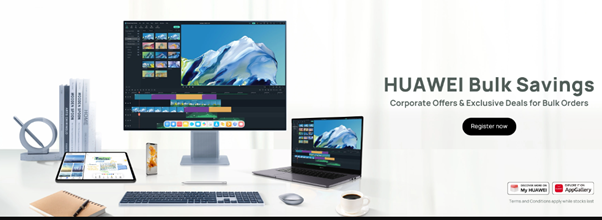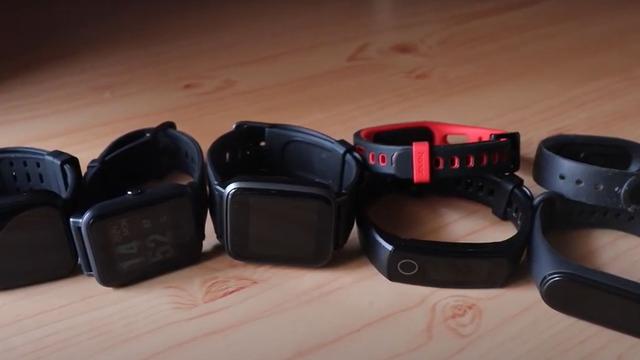
By cuterose
Fitness tracker vs. smartwatch: What is best for you?
As more of us are adopting health-focused and on-the-run lifestyles, more people are purchasing devices that make their lives that much simpler and result in more fluent decision-making processes. One specific field involves fitness trackers and smartwatches, two increasingly popular devices that claim to be must-haves and yet leave many of us asking: which one should I buy?
As this market rises in popularity, so does the number of brand names in the competition. This, for you and me as customers, can be a good development if we do our homework. Apple and Samsung are leading the races in the smartwatch industry, while Fitbit and Garmin are meeting the demands of the more health/sports savvy individuals.
Going from a Fitbit fitness tracker to a Samsung Galaxy, and now a Garmin, I can confidently claim to have experienced a good portion of all worlds. Fitness trackers and smartwatches both help you remain connected, track the activities of your daily routines, and monitor your progress towards the goals that you set to reach a certain fitness balance based on your age, needs, and lifestyle. Yet considering the differences between these two wearables, we all could use some advice to decide what to buy, if anything at all, and which feature(s) are paramount to us.
Nearly four years in this lifestyle has provided me with some experience that I think can help you in deciding what to purchase.
A necessary introduction
Up to now differentiating between a fitness tracker and a smartwatch has been quite easy. A fitness tracker has been a simple band with various sensors that transmit data to your smartphone where you can analyze and make decisions. A smartwatch, however, with its larger screen, is practically a smaller version of your smartphone that relieves you of pulling your phone out to check texts, emails, and other notifications. Little by little, as technology has advanced and competition between various companies has escalated, we have been witnessing a convergence of these two devices.
This progress has shown fitness trackers becoming more sophisticated, available now equipped with larger screens and, nowadays, allowing you to view your smartphone notifications. Interestingly, smartwatches are adopting fitness and health features to provide even more to their customers. Ironically, the most popular fitness tracking device these days is not a fitness tracker perse, but the Apple Watch, which is, of course, the leading smartwatch in the market.
While fitness trackers are traditionally more tuned into health and activity monitoring, their newer, larger screens are providing today’s users the options of not only reading, but in some cases, replying to messages.
As the market becomes even more competitive, there are smartwatches out there that are apparently targeting those of us who care more about their fashion and looks than keeping fit. It might be hard to admit, but many of us find the attractiveness of our watch a very important necessity, which at times comes at a sacrifice of smart/fitness features.
What is your priority?
Before rushing to a retail store or quickly ordering anything online, it is always best to do your homework and be realistic about what is important to you. My experience shows that reading at least three or four articles and/or watching about an hour of YouTube reviews of different watches is the first step into deciding what type of fitness tracker or smartwatch to purchase.
If you are willing to invest hundreds of dollars into a high-tech smartwatch, I would truly recommend you to only do so if you also intend to use your smartwatch as an extension of your phone.
What does that mean? If you are one of those individuals who constantly reach for their phone for a variety of reasons throughout the day, you might consider it useful to have a smartwatch that frees you from the burden of using your phone for the simpler tasks.
If the above paragraph does not apply to you, and you find fitness and health aspects being more important, you may want to consider looking into fitness trackers that are more focused and more reasonably priced than smartwatches. I, personally, fall into this field. Sometimes fitness trackers fall into the category of devices that do as much, and they also don’t distract you as much.
Here’s a short story about myself that may help in your decision-making process. Let me be honest—when I got interested in having a smartwatch or fitness tracker, seeing my friends and others having such a device, and me feeling left out was the first element that pulled me into seeking such a device. Conveniently, a friend asked what I wanted for my birthday. Of course, I preferred the Apple Watch 3 at the time, but the price tag made me hesitant and after doing some research I decided to ask for a Fitbit Charge 3. While very grateful, it seemed both small at a first glance and not the style that best fit me. Although, this takes nothing away from the amazing fitness and health features of Fitbit devices.
Around a year later another very generous friend, who knew about my growing interest into smartwatches, surprised me with the first Samsung Galaxy Watch. The unique features of the bezzle and other characteristics, along with syncing greatly with my phone, had me delighted. Yet again, as one’s appetite is never fulfilled, my crave for an Apple Watch remained while the price and the fact that owning an iPhone would be a necessity held me back.
Two years down the road, I became more mature and that early crave for these devices evolved into coming to my senses and realizing that one needs to focus on their personal necessities. Overcoming that yearn of having an Apple Watch just for others to see that I have such a smartwatch, I grew into the decision of purchasing a Garmin Venu SQ that provides some of both worlds: being an excellent fitness tracker with a few convenient smartwatch features.
And BTW, I gave away my Fitbit Charge 3 and Samsung Galaxy Watch to different friends and they’re still working to this day.
Need to knows
The most important difference between a smartwatch and a fitness tracker is the variety of features and certain abilities they place before you. Generally, a smartwatch will deliver most, if not all, the abilities found in a fitness tracker, along with some extras. For example, nearly all smartwatches come with heart rate sensors and built-in GPS features to provide far more precise health tracking. This is paralleled with specific workout-training and coaching apps. These characteristics are found only in the most high-tech fitness trackers in today’s market.
The smart features found in smartwatches are also more advanced than those found on fitness trackers. This includes music control and built-in Bluetooth that will be necessary to connect wireless headphones, built-in microphones for voice assistant features and making calls, and the increasingly popular NFC for those of us who prefer the luxury of having on-the-go payment options.
More companies are now offering smartwatches equipped with cellular models, allowing us to operate with full independence from our smartphones. However, before you go “ooooh!” take the time to think this out and make a true decision if you actually need such a feature on your smartwatch.
Making wise decisions is always important. That said, let’s not forget that some more advanced fitness trackers these days do provide similar smart features and capabilities. Yet do keep in mind that the main number of fitness trackers out there do distance from such versatility, as do their users.
Battery life is where fitness trackers gain the upper hand in comparison to smartwatches. Due to the fact that smartwatches provide large bright displays, they thus demand far more power. This leads to shorter battery life and more frequent recharging becoming a feature of your daily routine. For example, any model of Apple Watch that are quite expensive indeed will be demanding almost daily recharges (at times even more). All the while, Fitbit and Garmin, the two most popular fitness tracker companies, provide various models at decent prices with far better battery life. So, if battery life and constant recharging is an issue for you, keep this in mind.
Size is also an important factor to take into consideration. It goes without saying that smartwatches are larger than fitness tracker. Unlike myself, many prefer the smaller fitness trackers that have arguably more appeal and are not bulky and annoying, as some describe the larger smartwatches. However, most of us are looking for a device to, for example, track our steps, monitor our heart beats, and tell us how many of those damn calories we have burned during our day. While they don’t have large displays, this is where fitness trackers distance away from smartwatches. The former is definitely more lightweight and also more comfortable during your sleep.
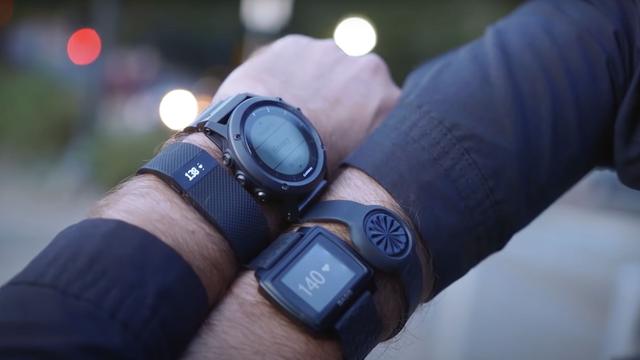
Thinking budget
As a rule of thumb in this market, like many others, spending more equals to getting more features on your watch, whatever the model. This includes multi-sport tracking or even 4G to make calls without using your phone (keep in mind that your carrier may charge you more for this feature). Do take into notice that price is not necessarily the most important indicator of quality and performance. There are fitness trackers and smartwatches out there that despite their high prices are often found to feel awkward to the user and even inaccurate.
If like most people you don’t wish to spend hundreds of dollars for a highly advanced smartwatch, it is good to know that a decent fitness tracker is far easier to find at a reasonable price. They can range from $50 to the more premium models that range around $200. For example, the more popular fitness trackers are Garmin Vivosmart 4 ($90 to $100) and the Fitbit Inspire (around $70).
Most affordable smartwatches, however, usually range around the $200 threshold. Do keep in mind that the larger the smartwatch, meaning the larger its battery, and the material that smartwatch is made of, if it comes with cellular capabilities, and of course, the certain fitness features you may wish, can all add to the end price. That said, Samsung models can be found at $175, older Apple Watches at $200, and Fitbit, while focusing more on fitness trackers, also provides smartwatch models that cost $200 or a bit more.
However, more advanced models, such as the Garmin Forerunner, being a heavy-duty smartwatch with extremely advanced features focusing on running, can reach deep into your pockets with a price tag of $600. And while it seems ridiculous, Apple does offer its watches in extremely expensive material, such as titanium or ceramic, and the cost is a jaw-dropping $1,000 or more. Some models are so expensive they come with payment plans.
Is a fitness tracker for you?
Decision time! Reading what we have to this point, it is finally time to really think about what is best for you. Basically, a fitness tracker helps you gain a look into your daily activities, track your steps, count your burnt calories, and tell you how you are sleeping. Devices with more advanced features support certain types of sports or exercises, such as specific running workouts, outdoor biking and indoor cycling, indoor/outdoor swimming, and even golf! Even more advanced devices offer multi-sport tracking, for the more sport gurus out there that love to get into the specifics.
There are also devices that focus their more advanced tracking sensors, including heart-rate monitors, and simple notifications, such as short emails and basic text messages. Those fitness trackers that come with built-in GPS can operate separately from your phone, allowing you to conveniently leave your phone at home while enjoying a good run or bike ride.
Pros—Simple, down-to-earth fitness trackers can be found at lower prices. Ones with decent features are certainly available at around $50, providing a good option for those of us on stricter budgets. And it goes without saying that many fitness tracker models focus on comfort, allowing you to wear them all day without any issues. More advanced models cover highly specific sports and activities, coming at higher prices, of course. This leaves some people thinking should they purchase a smartwatch instead?
Cons—Apart from the world of exercise and activities, fitness trackers sometimes vary in how much versatility they provide when it comes to other functions. This includes relaying small notifications from your phone, playing music, and third-party apps that, honestly, can be a bit tricky to manage.
Final thought—The best fitness trackers out there are indeed accurate, comfortable, and very user-friendly. The worst, however, either over- or understate the information you receive, and become frustrating to wear and use. With that said, choose wisely!
Or should you buy a smartwatch?
Let me be frank: if you are intrigued by the sense of having an extension of your smartphone more easily accessible on your wrist, then you should most certainly purchase a smartwatch. Furthermore, if you are the type that relishes specific sports tracking features, then again you should certainly lean toward purchasing a smartwatch.
The most appealing feature of a smartwatch is its capability to link to your phone. With smartphone technology advancing at an amazing pace these days, I like to call smartphones as minicomputers and smartwatches your remote control to these minicomputers.
Being able to link with your smartphone notifications through a smartwatch, including texts, calls, directions, emails, calendar appointments, and messages from your variety of social media platforms, all with ease and style, is quite impressive, to say the least.
The best smartwatches allow you to quite easily view and even respond to notifications, dictate your preferred text, or email responses, or even send “smart” replies. At the very least most smartwatches are able to handle tracking your fitness and activities.
If you prefer a preview of your exercise details or more details of your smart notifications from your wrist and without being forced to reach for your phone, then by all means, smartphones that fancy larger screens are for you.
As mentioned before, some smartphones will be fully equipped with a variety of sensors and special technology designed to track specific activities such as running, swimming, or even going for a good hike in a great outdoors exploration. These features may include:
Altimeter: barometric pressure or GPS data used to inform you how high above sea level you are, helping you in the process of locating yourself on a map if necessary.
Barometer: monitors changes in atmospheric pressure, allowing you to predict whether any changes in the weather, for the better or worse, are in the horizon. Some barometers can even send you notifications if they sense an incoming storm.
Navigation: location-tracking services (such as GPS, Glonass and Galileo), along with a compass, visual maps, and even the option to save your route memories along with adding descriptions for future references.
Thermometer: useful in planning what to wear, especially if you’re going on a long hike.
Running metrics: my personal favorite, tracking your running pace, tempo, and elevation, while providing customizable workouts and highly detailed insights into your performance and often gone neglected, recovery time.
Swim-specific metrics: such as pace, distance, and SWOLF, being a measurement of your swimming efficiency.
Chest heart rate monitor compatibility: for those die-hard athletes or those in need of these devices due to certain illnesses, it is worth noting that they are far more accurate than heart-rate readings taken from your wrist.
Some smartwatches, although more expensive, are specifically built to be especially durable, equipped with a strong strap and scratch-resistant screen.
Finally, similar to fitness trackers, smartwatches tend to vary in their accuracy of measuring your activities, and how user-friendly they actually are.
Is there a device delivering the best of both worlds?
You can arguably say so, but not exactly. Let me explain.
The fine line between smartwatches and fitness trackers (including those focused more on fashion, and those relishing at sports) is becoming more difficult to distinguish. Having owned both fitness trackers and smartwatches, I have been able to somewhat determine whether any of these classifications can actually perform at least decently in both capacities.
However, it cannot be denied that these devices continue to be perceived as slightly different by everyday customers. Apple has long done a good job in providing watches that deliver strong fitness and activity tracking functionality, along with what is now easily considered the most sophisticated smart features and very sleeky designs.
As I emphasized earlier, determining exactly what is best for you, and combining that with what you desire for yourself, is the most important and defining factor in choosing between a fitness tracker and a smartwatch, or any such device at all.
And believe me, I know firsthand how tempting it is to splash out on an Apple Watch hoping it will provide everything you may be looking for; you have to still bear in mind that it will not be ideal for everyone. I don’t believe any fitness tracker or smartwatch ever will. In this market, there simply is no “one size fits all” device.
Finally, I certainly recommend purchasing either a smartwatch or fitness tracker. The very fact that one owns such a device raises attention to their health, which has often gone neglected in our more urban, behind-the-desk, and couch-friendly lifestyle these days.


